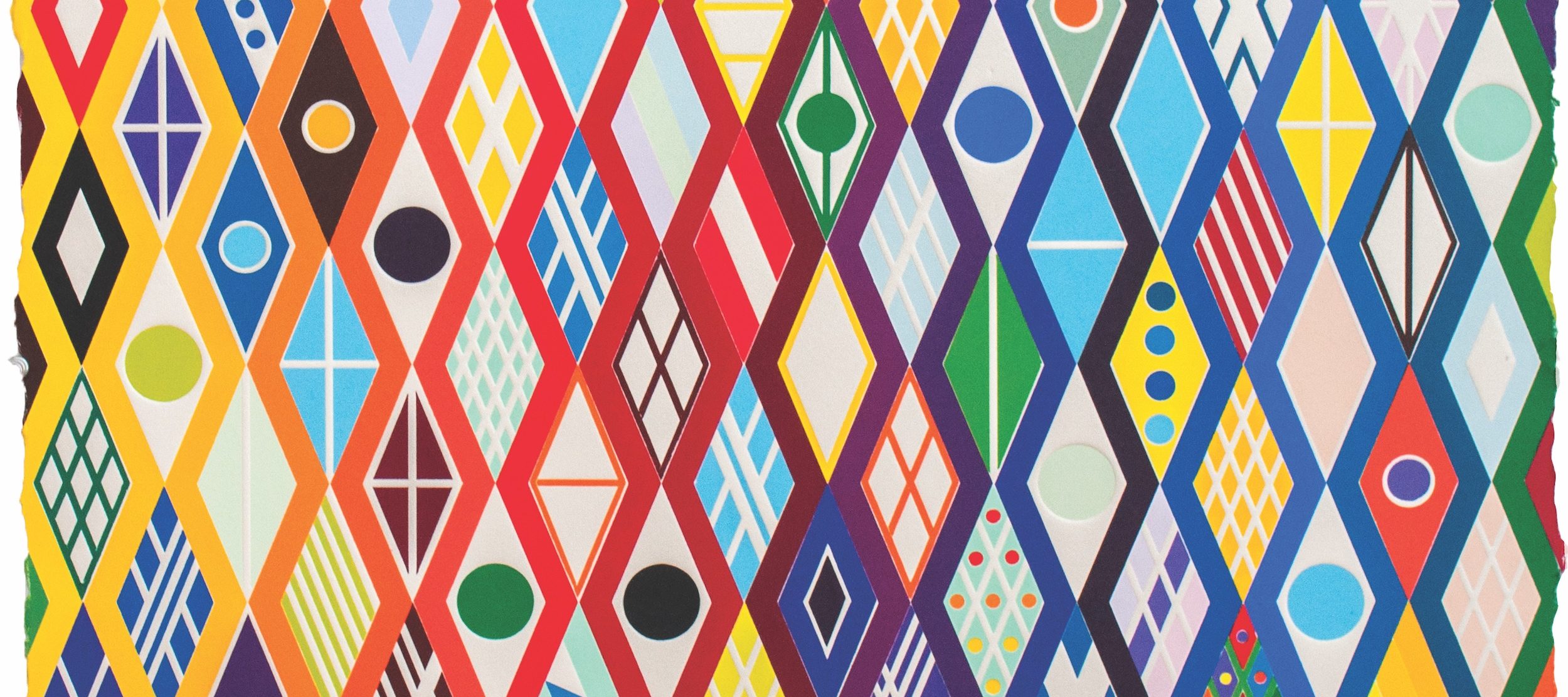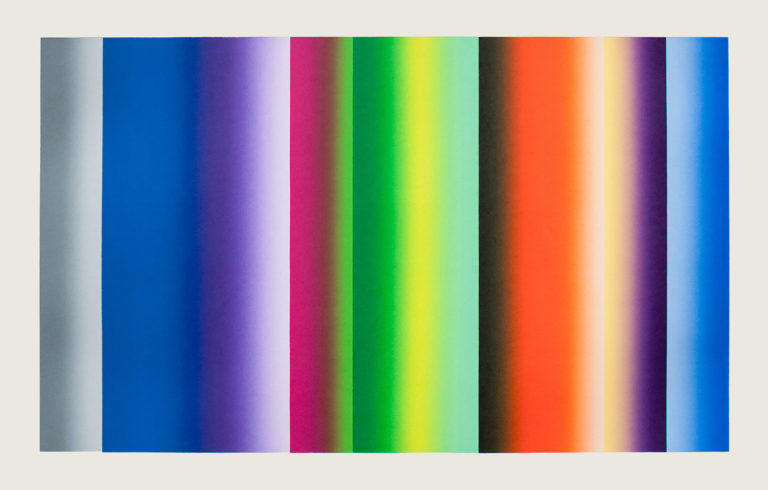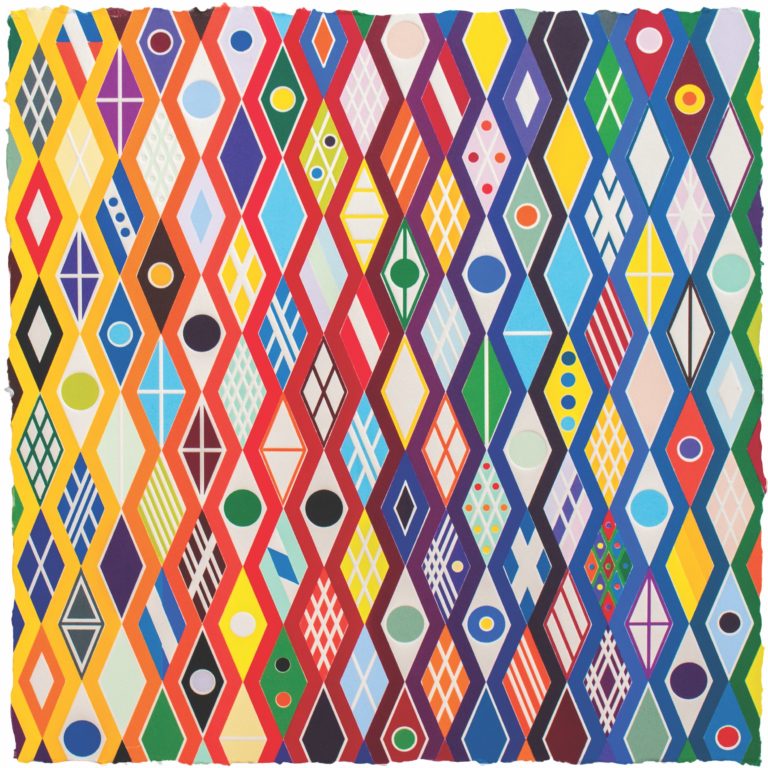Polly Apfelbaum (b. 1955, Abington, PA) employs bright colors and abstract motifs in her prints, using methods that are simultaneously ordered and spontaneous. The performative aspect of her well-known large-scale installations carries over to her printmaking process. Chromatic Scale explores her distinctive approach to prints and how it relates to her work in painting, sculpture, and installation.
To make her woodblock prints, Apfelbaum improvises compositions from multiple blocks that are carved, inked, and placed individually. She works with up to hundreds of blocks at a time, methodically assigning colors to each block and intuitively arranging them in precise compositions. In her most recent prints, she has experimented with more fluid coloring and shapes, using a “rainbow roll” technique, in which multiple colors are partially mixed to achieve a continuous gradient effect.
Chromatic Scale continues NMWA’s exploration of innovations in printmaking, a medium in which women have worked since the sixteenth century. Including selections from the museum’s collection as well as complementary loans, this exhibition provides a focused study of Apfelbaum’s print work, which probes color, form, and abstraction.

Polly Apfelbaum, Night Flowering, 2009; Woodblock print on handmade paper, 15 x 15 in.; Gift of Steven Scott, Baltimore, in Honor of National Museum of Women in the Arts Chief Curator Kathryn A. Wat and the Twenty-fifth Anniversary of the National Museum of Women in the Arts; Photo by Lee Stalsworth; © Polly Apfelbaum; Photo by Lee Stalsworth
Exhibition Sponsors
Chromatic Scale: Prints by Polly Apfelbaum, presented in the Teresa Lozano Long Gallery of the National Museum of Women in the Arts, is organized by the museum and generously supported by the Judith A. Finkelstein Exhibition Fund and the members of NMWA.
Exhibition Gallery
The Artist,
Polly Apfelbaum
Vibrant, eye-popping color unifies Polly Apfelbaum’s wide-ranging work.


